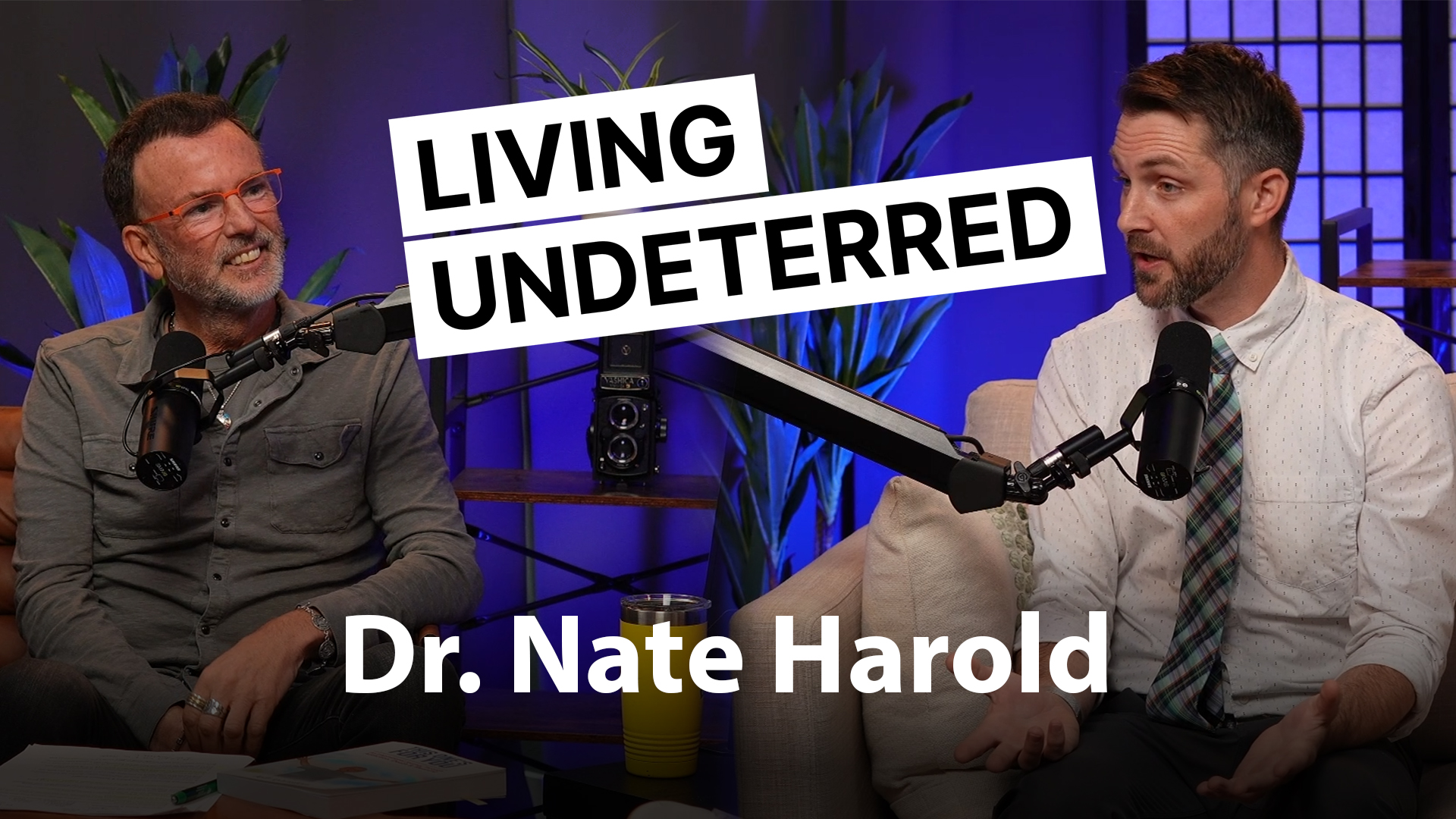
Jeffrey Johnston
January 15, 2026
•
5 min read

By Jeff Johnston, Founder of Brightn and Host of the Living Undeterred Podcast
Watch the full episode here:
In this episode of the Living Undeterred Podcast, Jeff sits down with Dr. Nate Harold, Chief Pharmacy Officer at MedOne, for a raw and personal conversation about addiction, trauma, faith, and why pharmacy reform is about so much more than lowering drug prices.
Dr. Nate shares his story of growing up in a blue-collar household in Yakima, Washington — and how his mother’s spiral into opioid addiction shaped the course of his life and career. From those early experiences, he found a calling not just to become a pharmacist, but to build a system that actually helps people heal.
Together, Jeff and Dr. Nate dive into the flaws of the pharmaceutical industry, the dangers of overprescription, and how technology and empathy can transform how we approach mental wellness.
Dr. Nate: I didn’t take the traditional path. I actually dropped out of college in my early twenties. I was trying to figure out life. I packed up my car, left Washington state, and eventually ended up in Iowa. What really shaped me, though, was watching my mom go from a broken ankle—literally from tripping on a Skip-It toy—to full-blown opioid addiction. I was just a kid, and suddenly our entire life changed. She never really got off the medication. Doctors kept prescribing, and no one really asked the right questions.
Dr. Nate: It showed me that we’ve created a system where it’s easier to prescribe than to listen. There were nights I’d find my mom unconscious on the floor. I started to resent the system, but I also wanted to understand it. I didn’t want to be another cog—I wanted to be a change agent. That’s why I became a pharmacist.
Dr. Nate: MedOne was founded to do things differently. The pharmacy benefit management (PBM) space is broken. It incentivizes overprescription and hides costs behind layers of contracts. At MedOne, we’ve built a transparent, patient-first model. We turn down revenue if it misaligns with our values. We want to make money ethically — and only in ways that don’t hurt patients or pharmacies.
Dr. Nate: We’ve been trained to believe there’s a pill for every ill. But medicine is a tool — not a solution. The real solution is holistic. And frankly, most people are on more medication than they should be. The goal shouldn’t be to add pills. It should be to empower people to feel better through the right mix of support, lifestyle, and yes, sometimes medication — but only when it’s the right tool.
Dr. Nate: Absolutely. Health is one piece of it, but people underestimate how much financial insecurity and lack of purpose affect our mental wellness. I saw it in my own home — my parents fought constantly about money. That stress shapes you. And when someone lacks a reason to get out of bed in the morning, all the therapy and medication in the world won’t fix that. That’s why I love Brightn’s model — because it addresses all three pillars.
Dr. Nate: One of the most heartbreaking things was seeing people come in on suicide watch and just sit alone in a room for hours — sometimes a full day — while we waited for someone to assess them. Eventually, we created a shared space in the ER where patients could talk to each other. You know what happened? They started healing — just by connecting. Most people don’t need a miracle. They just need someone to listen. That’s why AI-powered journaling and tools like Brightn matter — because connection can’t wait for office hours.
Dr. Nate: Faith shaped me early on. At 13, I started going to church with my great-grandmother. I ended up attending a theology school in England and almost became a pastor. But what I learned is that faith can look different for everyone. For me, it became about service—helping people in tangible ways. Today, my work in pharmacy is my ministry. It’s how I live out those values. Faith gave me a sense of purpose when I needed it most.
Dr. Nate: Have the courage to pivot. Don’t believe the lie that you're trapped. You can change the game. You just have to believe it. I’ve pivoted a lot in my life. And I’m sure I’ll pivot again. But settling for unhappiness? That’s not an option.
This episode isn’t just about pharmacy reform. It’s about what happens when trauma is turned into purpose—and when companies decide to put people over profits.
Dr. Nate’s story is a powerful reminder that wellness is bigger than health. It’s about meaning. Stability. And the courage to demand something better—from ourselves and our systems.
Learn more about MedOne at medone-rx.com
Learn more about Brightn at brightn.app
Listen to the full conversation on the Living Undeterred podcast.
Let’s Brightn lives, together.
